- Home
- Bonnie Bryant
Riding Class
Riding Class Read online
CRUEL COMMENTS
Veronica brought her horse, Danny, to a square halt. She looked down at Emily with an expression of smug satisfaction. “You know, this is what real riding is all about.”
Stevie moved closer to Emily. “Let’s go,” she whispered. “She isn’t going to change.”
Veronica either didn’t hear or pretended not to. “You might want to come watch us compete next weekend,” she continued. “It’ll all be real riding—a lot different from those pony rides they take you on at Free Rein.”
Emily flushed red. “I ride,” she said.
Veronica smiled. “I’m sure you do,” she said. “You should try to come next weekend. Then maybe you’d understand.”
“Come on,” Stevie whispered fiercely, her hand on Emily’s elbow. “Don’t listen to anything she says.”
Emily nodded and turned back to the stable, but The Saddle Club could see that their friend’s eyes were full of tears.
RL 5, 009–012
RIDING CLASS
A Skylark Book / March 1996
Skylark Books is a registered trademark of Bantam Books, a division of Bantam Doubleday Dell Publishing Group, Inc. Registered in U.S. Patent and Trademark Office and elsewhere.
“The Saddle Club” is a registered trademark of Bonnie Bryant Hiller. The Saddle Club design/logo, which consists of a riding crop and a riding hat, is a trademark of Bantam Books.
“USPC” and “Pony Club” are registered trademarks of The United States Pony Clubs, Inc., at The Kentucky Horse Park, 4071 Iron Works Pike, Lexington, KY 40511-8462.
All rights reserved.
Copyright © 1996 by Bonnie Bryant Hiller.
No part of this book may be reproduced or transmitted in any form or by any means, electronic or mechanical, including photocopying, recording, or by any information storage and retrieval system, without permission in writing from the publisher.
For information address: Bantam Books.
eISBN: 978-0-307-82550-6
Bantam Books are published by Bantam Books, a division of Bantam Doubleday Dell Publishing Group, Inc. Its trademark, consisting of the words “Bantam Books” and the portrayal of a rooster, is Registered in U.S. Patent and Trademark Office and in other countries. Marca Registrada. Bantam Books, 1540 Broadway, New York, New York 10036.
v3.1
I would like to express my special thanks to
Kimberly Brubaker Bradley
for her help in the writing of this book.
I would also like to give my sincere thanks to a number of people who helped with ideas, information, and most of all inspiration for this story: Joyce Mabry and the Therapeutic Riding Association of Virginia; Patty Pryor at A Leg Up Riding Center in Abingdon, Virginia; the North American Riding for the Handicapped Association; and the Agape Therapeutic Riding Center of Cicero, Indiana.
Contents
Cover
Title Page
Copyright
Dedication
Chapter 1
Chapter 2
Chapter 3
Chapter 4
Chapter 5
Chapter 6
Chapter 7
Chapter 8
Chapter 9
Chapter 10
Chapter 11
Chapter 12
Chapter 13
About the Author
“HORSE WISE, COME to order!”
With a last-second flurry of whispers, the members of Horse Wise, the Pony Club at Pine Hollow Stables, hurried to find seats on the office floor. Stevie Lake dashed in late and looked around the room for her two best friends, Lisa Atwood and Carole Hanson. Lisa waved Stevie over to the seat she and Carole had saved.
“Thanks! I knew I could count on you!” Stevie said. “Won’t this be fun? I wish we were riding, but still—”
“Horse Wise, come to order,” Max Regnery said again, with an amused glance in Stevie’s direction. Stevie grinned but quit talking. Max ran Horse Wise in addition to owning and running Pine Hollow Stables. Max was the boss, and he hated it when his students didn’t listen to what he had to say. Fortunately for the students, what Max had to say was usually very worthwhile. It was usually about horses.
Stevie, Lisa, and Carole were united by a common love of horses and riding. They’d met and become best friends at Pine Hollow, and they spent most of their free time there. The three girls had even formed The Saddle Club, which was devoted to learning more about riding. There were only two rules: Members had to be horse-crazy, and they had to be willing to help each other out.
Of the three, Carole was considered the best rider. She was crazy about horses and planned to spend her life working with them—whether as a rider, trainer, or vet, she wasn’t quite sure. Stevie had no idea what she wanted to do when she grew up—she was having too much fun right now to worry about her future. Stevie’s love of practical jokes sometimes landed her in serious trouble, but her creative solutions—and her two best friends—usually got her out. Lisa was older, and more serious, than the other two. She hadn’t been riding for as long, but she was working hard to catch up.
“First things first,” Max continued, and the three girls, along with the other twenty or so members of Horse Wise, sat up straight and listened. “Thank you all for being so willing to give up your mounted meeting today. We’ll also have an unmounted meeting next weekend, but after that … well, I’ll make it up to you.”
As with most Pony Clubs, Horse Wise usually alternated between mounted—on horseback—and unmounted—classroom—meetings. Today they would have had a mounted meeting, but instead they were joining several other nearby Pony Clubs, hunt clubs, and riding clubs to work on Volunteer Day at Free Rein, a local center for therapeutic riding.
“There will definitely be a mounted meeting two weeks from now,” Max went on. “Let’s just say that those of you who haven’t been riding much this winter might want to make an effort to get back in the saddle before then. Let’s just say,” he paused, looking around the room at the rapt faces of his riders, “that there might be prizes involved.” He grinned. Like a cat in the cream, Carole thought. It was a typical Max expression.
“Prizes!” squealed May Grover, one of the younger riders. “He means a horse show!”
The Saddle Club smiled. Winter was over, but barely. The horses still wore their thick winter coats, and the riders usually did, too. The paddocks were muddy from melted snow and cold winter rain, and the horses were often muddy from rolling in the paddocks. Stevie, Carole, and Lisa were more dedicated than most of the other riders at Pine Hollow, but when the indoor arena was being used for lessons, and the trails and outdoor ring were hock-deep in slick, half-frozen mud, even The Saddle Club couldn’t possibly ride. They were eager for spring. A horse show would be a fantastic change of pace.
“Well,” said a snooty voice from the back, “we know who’ll win the championship, don’t we?”
The Saddle Club didn’t have to look to know who that was. Veronica diAngelo, their least favorite rider of all time, had gotten a new horse named Danny for Christmas. At least, Danny was what people called him. His registered name—his show name—was Go For Blue. Stevie also had her own horse, a mare named Belle, and Carole had a bay gelding named Starlight. They were both fantastic horses, but their show names were Belle and Starlight, and even Stevie and Carole had to admit that in terms of equine perfection, they didn’t come close to Danny. He was like a Greek god: aloof, impeccable, flawless. And Veronica, who’d always attached tremendous importance to money and prestige, was a real brat about him.
Lisa leaned over to whisper to her friends. “The worst part is, she’s probably right.” Carole nodded grimly, and Stevie made a face. On her bad days, Veronica had temper tantrums, but on her good days she
rode very well indeed. She and Danny would certainly go for blue—for the blue ribbon that would be first prize.
“Oh, I wouldn’t be so sure about that,” Max said, startling The Saddle Club, who weren’t sure if he was talking to them or responding to Veronica’s comment. “This—er—event may be a little—umm—different.” He paused, then shook his head, still smiling. “I’ll tell you all the details next week. Meanwhile, I hereby challenge all of you who’ve been stuck in the winter doldrums to shake the wind out of your sails, turn over a new leaf, put your noses to the grindstone, and—” Max seemed to get lost in his metaphors—“and anyway, let’s have a quick review before we head off to Free Rein. Who read the pamphlets I sent home with you last week?”
Every hand went up. Max seemed pleased. “Very good. Then tell me, when did therapeutic riding begin in this country?”
Meg Durham answered. “In the late 1960s. It started in Europe before that.”
“Right. And what is therapeutic riding?”
Adam raised his hand. “Riding done by people with physical, mental, or emotional disabilities. It helps them become stronger, like physical therapy. And it helps them learn new skills.”
“And it’s fun,” Carole added. “They get to ride horses.” To her, that was the most important part. Carole couldn’t imagine her life without horses, and she knew how much they had helped her emotional state in the terrible months just before and after her mother’s death.
“Right,” Max said. “Now, today at Free Rein we aren’t going to see any riding, and we may not see much of the horses. But just remember why we’re doing this: so someone else gets to ride.” He clapped his hands together. “Let’s go! We’ve got work to do!”
Laughing and talking, Horse Wise piled out of the office and into the cars that were waiting to take them to Free Rein. The Saddle Club headed for Carole’s father’s station wagon. Colonel Hanson was a Horse Wise volunteer.
“We can take a few more people!” Carole called. Meg and Polly Giacomin came running. “Veronica?” As soon as she said that, Carole wished she hadn’t. Even if Free Rein was only a few miles away, the last thing Carole wanted to do was spend those miles in the same car with Veronica. But Veronica was heading—alone—to her family’s chauffeur-driven Mercedes.
Veronica stopped and turned. “My family supports the poor by generous financial contributions,” she informed Carole. “We don’t feel the need to get involved with them.”
“Of course,” Carole responded numbly, stopping in her tracks. Veronica smiled and climbed into the Mercedes. The chauffeur closed the door for her.
“Of course,” Carole repeated, getting into the station wagon with a shake of her head. “She’s Veronica.” Colonel Hanson pulled out of the drive.
“She isn’t coming to Free Rein, is she?” Lisa asked.
“She called them ‘the poor,’ ” Carole said, still amazed.
“They can’t be poor. They’re riders,” Stevie said.
“I thought Max said no one at Free Rein had to pay for lessons,” Meg said.
“It’s a United Way–sponsored agency,” Colonel Hanson explained. “People pay what they can.”
“Veronica’s a nincompoop,” Stevie said. “Remember what a snot she was about the benefit we did for the County Animal Rescue League? She never puts herself out for anyone.”
“She doesn’t understand anything about helping anyone,” Lisa said. She was grateful for the support her friends gave her and glad when she could help them back. It was a feeling Veronica didn’t understand, and Lisa almost felt sorry for her. Almost.
“It doesn’t matter,” Colonel Hanson said. “You’ll have a better day without her. Here we are!” He pulled into a freshly paved parking lot. Right in front of them was a large, tan indoor arena. Behind that nestled a smaller tan building that looked like a stable, and on both sides were big paddocks containing a variety of fuzzy, sturdy, placid-looking horses. A paper banner on the side of the arena read, WELCOME, VOLUNTEERS!
“Isn’t this fun?” Lisa asked as they got out of the car. Stevie and Carole nodded. The parking lot was packed, and there were people everywhere.
“I just wish Cross County had come,” Stevie said with a dramatic sigh. Carole and Lisa laughed. Stevie’s boyfriend, Phil, rode with Cross County Pony Club.
“Look at it this way, you’ll get more work done without him,” Carole teased. She led the way into a door on the side of the arena.
The door led to a lounge with wide windows looking into the arena. A big couch, a table, and several comfortable chairs were scattered around. On the couch a tiger cat lay contentedly, nursing three tiny kittens. The room was full of people of all ages.
“Welcome,” said a deep, friendly voice. A red-haired woman near the table stood up and waved her arms to attract attention. “I’m Debbie Payne, director of Free Rein Therapeutic Riding Center. I’m delighted that so many of you have given up your Saturday to come here. We always get a lot of work done on Volunteer Day. Your help is invaluable.
“We don’t have any lessons going on today,” she continued. “But all of you are welcome to come back another day. We now have twelve horses, some two hundred regular volunteers, and just over one hundred riders.
“I’ll be around all day, and if any of you have questions about Free Rein, please ask. Meanwhile, there are doughnuts, coffee, and juice on the side of the room. We’ll set out a lunch at noon. Now, let’s get to work! Who here has carpentry experience?”
“OUCH!” LISA CRIED an hour later. She dropped her hammer and sucked her thumb, then examined it closely. The Saddle Club was standing in Free Rein’s west paddock. “I can’t believe you told her we had carpentry experience,” she said to Stevie.
“I didn’t actually say ‘carpentry experience,’ ” Stevie replied. “I said, ‘I think we can hammer nails.‘ ”
“Maybe you can hammer,” Lisa said. “I can’t.”
“Did you hurt yourself?” Stevie bent over her friend’s hand. “Are you okay?” The three girls had been replacing broken and horse-chewed rails in the paddock fence.
“Suck it,” Carole advised.
“I did.”
“You hold the boards,” Stevie suggested. “Let me do the nailing.”
“Okay.” They worked without talking for a while.
“One thing,” Lisa finally said, “it’s nice to be outside on a sunny day like this. It even smells like spring.”
“And we’re near some horses, even though they’re ignoring us,” said Carole. Three horses were grazing in the paddock where The Saddle Club was working.
“I thought this sounded like a better job than fixing the kick boards in the arena,” said Stevie.
“Or painting ground poles,” Lisa agreed.
“Or cleaning out the tack room,” said Carole. “We do enough of that at Pine Hollow. I wish they had wanted us to groom or do something that actually involved the horses, but, like Max said, we’re doing this so someone else can ride.”
“Not really ride,” objected Stevie. She concentrated fiercely, took aim, and squarely hit the nail she was holding. Lisa flinched. “Ha! Got it!” Stevie cried. “I don’t think a strong, tight paddock fence helps anyone ride,” she added. “I think it helps keep the horses safe so people can ride them.”
Carole laughed. “Picky, picky,” she said.
“Having fun, girls?” They turned. Ms. Payne had walked across the paddock to meet them. “You’re doing a great job,” she said. She reached into her pocket and pulled out a Band-Aid, which she handed to Lisa with a wink.
“Thanks. We’re trying,” Lisa said. Stevie and Carole snorted. They introduced themselves.
“From Pine Hollow!” Ms. Payne exclaimed. “That chestnut horse in the center paddock, over there, he came from Pine Hollow, too. His name is Jeremiah.”
Stevie frowned. “I don’t remember him,” she said, “and I’ve been riding at Pine Hollow for a long time.”
“Jerry’s been here
almost ten years,” Ms. Payne replied. “He’s one of our steadiest and best horses, as well as one of our oldest. Sometimes our horses get a little bored here—it’s slow work for them, they don’t get to canter much, and they never jump—so whenever they start to seem bored we loan them to a regular lesson program for a little while, and bring them back after they’ve had a vacation. Jeremiah never needs one.”
“Did you buy him from Max?” Carole asked.
Ms. Payne shook her head, smiling. “No, actually, Max gave him to us,” she said. “Jeremiah was getting old, and his arthritis made it uncomfortable for him to work hard. But he’s the type of horse that loves people and wants to be used. Our program’s a perfect way for him to spend his retirement, precisely because it is such slow work. He’s over thirty years old.”
“Wow!” Carole knew that horses rarely lived that long. “Are all of your horses so old?”
“Thankfully, no, but most are at least middle-aged. The youngest is eleven. Horses used for therapeutic riding have to be exceptionally calm and quiet so that they never do anything that might hurt the riders. It takes time for a horse to mellow out. Most young ones are still too excitable.”
Stevie understood. If something startled Belle, the mare could jump sideways like a cat. “I don’t think my horse would do well here,” she told Ms. Payne. “Not now, and maybe not ever.”
“Not Starlight, either,” Carole agreed. “He’s good and well behaved, but he pays attention to everything, and sometimes he gets a little distracted.”
Lisa laughed. “And definitely not Prancer!” she said, referring to the Pine Hollow horse she usually rode. “Prancer’s a Thoroughbred,” she explained. “She used to be a racehorse, so she’s pretty high-strung.”
Ms. Payne laughed, too. “You’re probably right,” she said. “All of you, in fact. You won’t find any Thoroughbreds here. As a breed, they’re generally considered too ‘hot’ for our needs. Arabs too. We like mixed-breed horses, especially horses with some kind of draft breed in them—what you’d call cold-blooded horses.

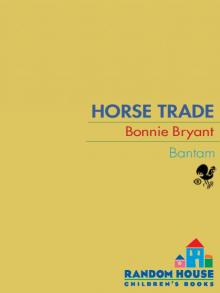 Horse Trade
Horse Trade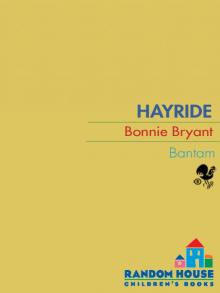 Hayride
Hayride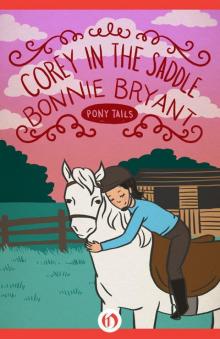 Pony Tails 06- Corey in the Saddle
Pony Tails 06- Corey in the Saddle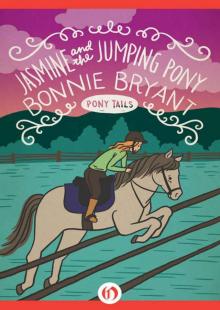 Jasmine and the Jumping Pony (Pony Tails Book 16)
Jasmine and the Jumping Pony (Pony Tails Book 16)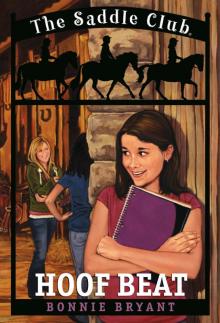 Hoof Beat
Hoof Beat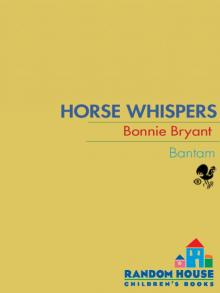 Horse Whispers
Horse Whispers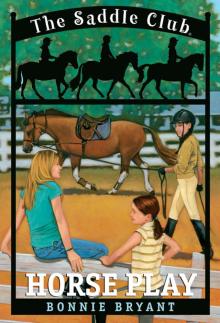 Horse Play
Horse Play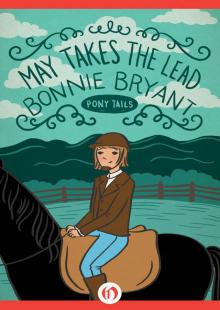 Pony Tails 05- May Takes the Lead
Pony Tails 05- May Takes the Lead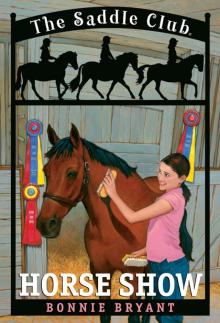 Horse Show
Horse Show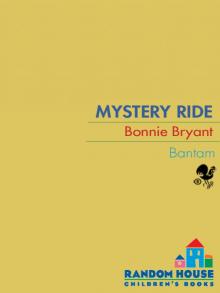 Mystery Ride
Mystery Ride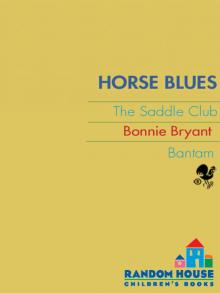 Horse Blues
Horse Blues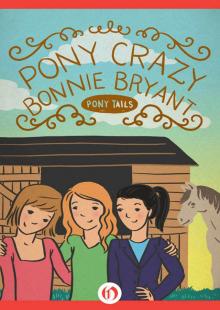 Pony Tails 01- Pony Crazy
Pony Tails 01- Pony Crazy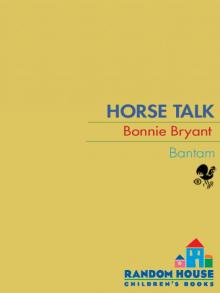 Horse Talk
Horse Talk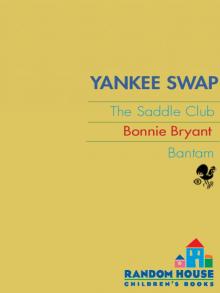 Yankee Swap
Yankee Swap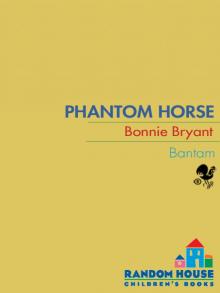 Phantom Horse
Phantom Horse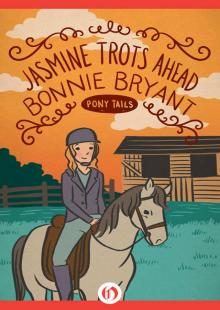 Pony Tails 07- Jasmine Trots Ahead
Pony Tails 07- Jasmine Trots Ahead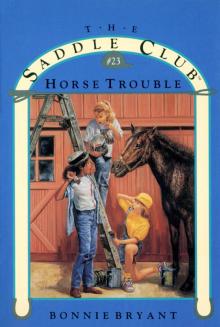 Horse Trouble
Horse Trouble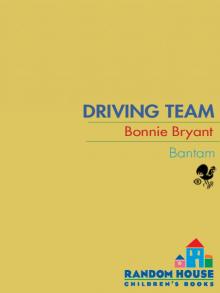 Driving Team
Driving Team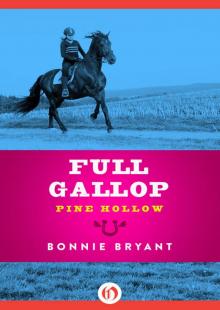 Full Gallop
Full Gallop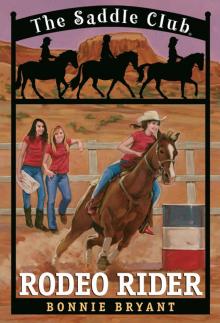 Rodeo Rider
Rodeo Rider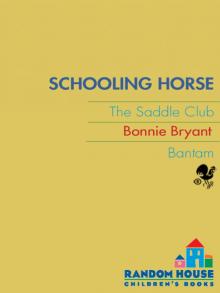 Schooling Horse
Schooling Horse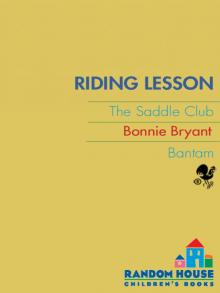 Riding Lesson
Riding Lesson Million-Dollar Horse
Million-Dollar Horse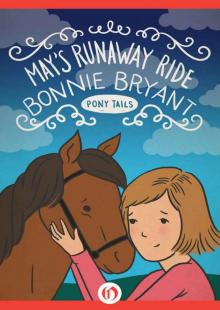 May's Runaway Ride (Pony Tails Book 14)
May's Runaway Ride (Pony Tails Book 14)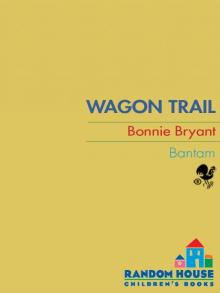 Wagon Trail
Wagon Trail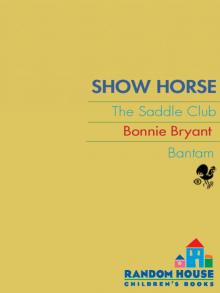 Show Horse
Show Horse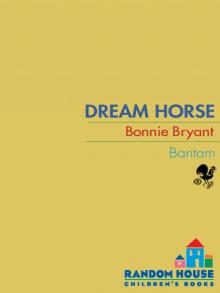 Dream Horse
Dream Horse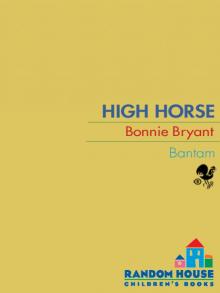 High Horse
High Horse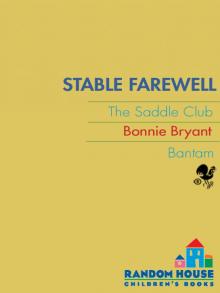 Stable Farewell
Stable Farewell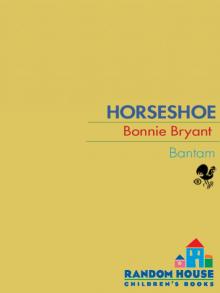 Horseshoe
Horseshoe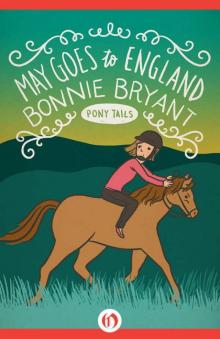 May Goes to England (Pony Tails Book 11)
May Goes to England (Pony Tails Book 11)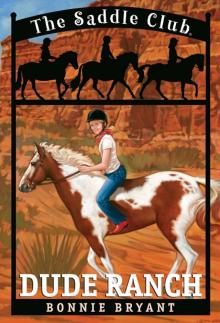 Dude Ranch
Dude Ranch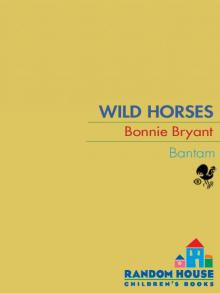 Wild Horse
Wild Horse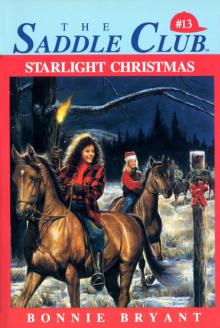 Starlight Christmas
Starlight Christmas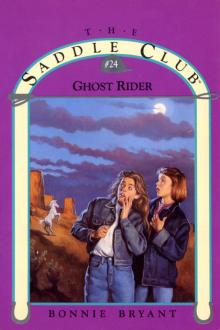 Ghost Rider
Ghost Rider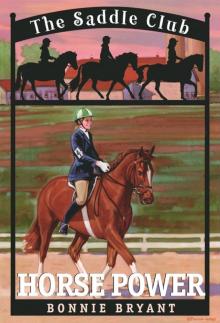 Horse Power
Horse Power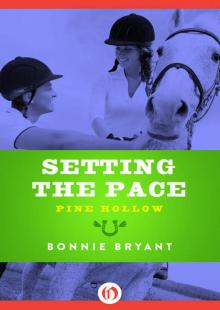 Setting the Pace
Setting the Pace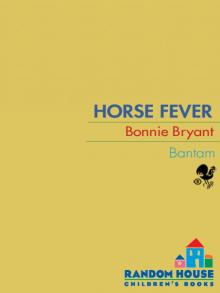 Horse Fever
Horse Fever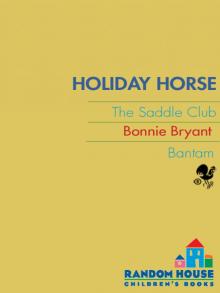 Holiday Horse
Holiday Horse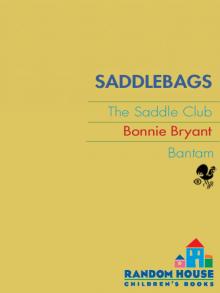 Saddlebags
Saddlebags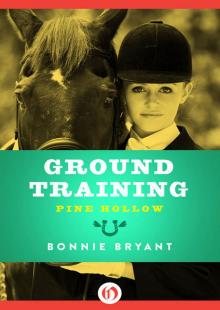 Ground Training
Ground Training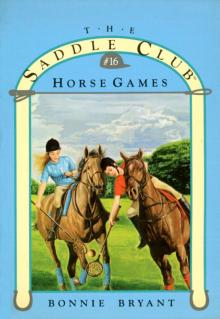 Horse Games
Horse Games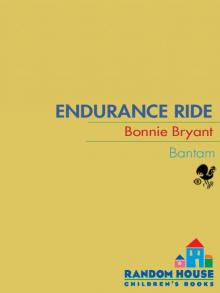 Endurance Ride
Endurance Ride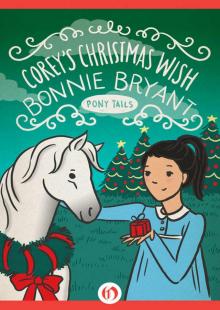 Pony Tails 15- Corey's Christmas Wish
Pony Tails 15- Corey's Christmas Wish Christmas Treasure
Christmas Treasure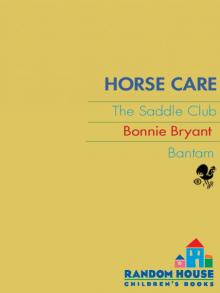 Horse Care
Horse Care Stagecoach
Stagecoach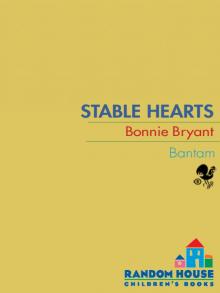 Stable Hearts
Stable Hearts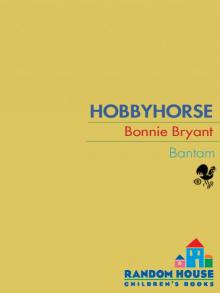 Hobbyhorse
Hobbyhorse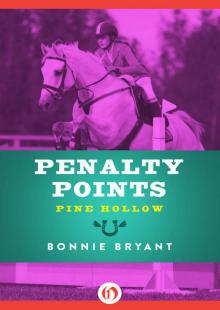 Penalty Points
Penalty Points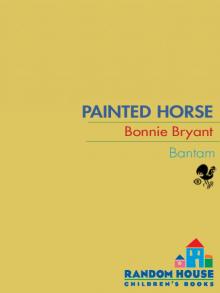 The Painted Horse
The Painted Horse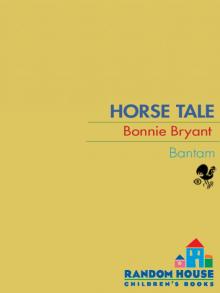 Horse Tale
Horse Tale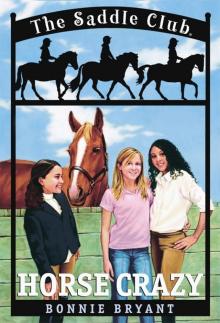 Horse Crazy
Horse Crazy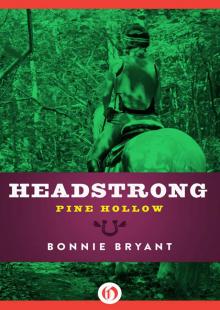 Headstrong
Headstrong English Rider
English Rider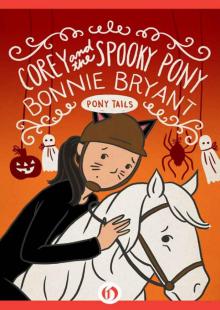 Corey and the Spooky Pony (Pony Tails Book 9)
Corey and the Spooky Pony (Pony Tails Book 9)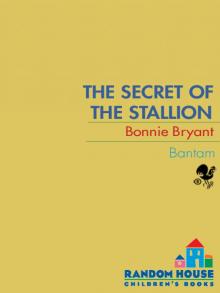 Secret of the Stallion
Secret of the Stallion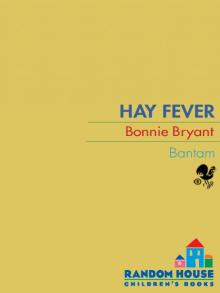 Hay Fever
Hay Fever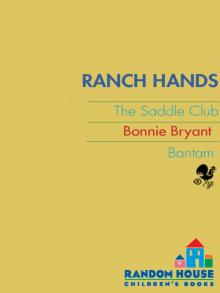 Ranch Hands
Ranch Hands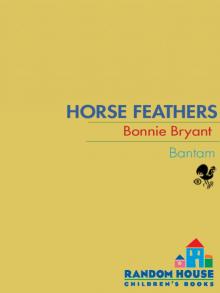 Horse Feathers
Horse Feathers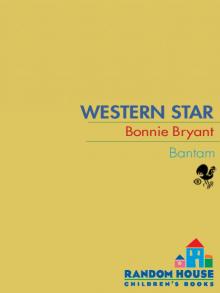 Western Star
Western Star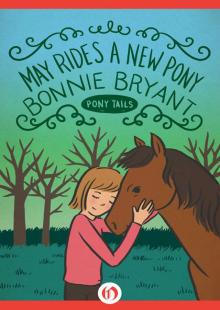 Pony Tails 08- May Rides a New Pony
Pony Tails 08- May Rides a New Pony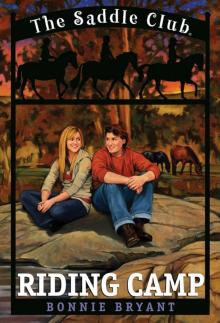 Riding Camp
Riding Camp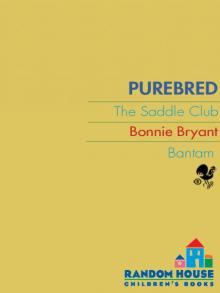 Purebred
Purebred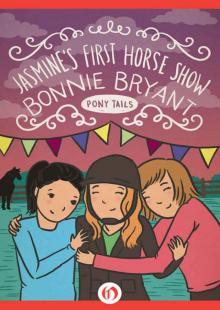 Jasmine's First Horse Show (Pony Tails Book 13)
Jasmine's First Horse Show (Pony Tails Book 13)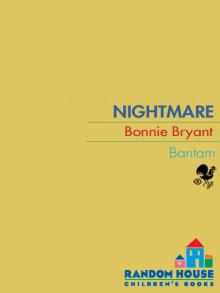 Nightmare
Nightmare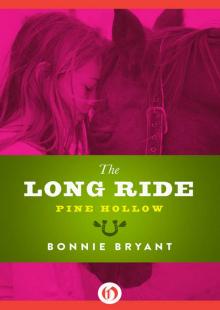 The Long Ride
The Long Ride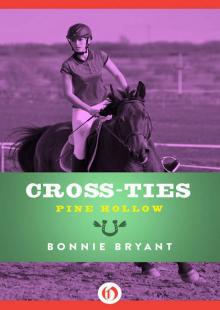 Cross-Ties
Cross-Ties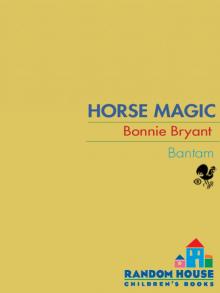 Horse Magic
Horse Magic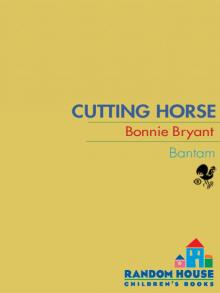 Cutting Horse
Cutting Horse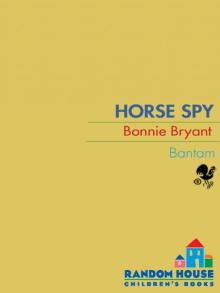 Horse Spy
Horse Spy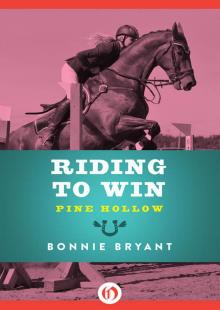 Riding to Win
Riding to Win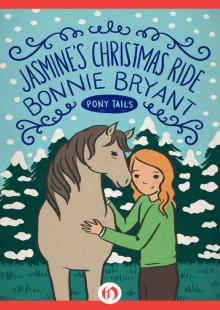 Pony Tails 04- Jasmine's Christmas Ride
Pony Tails 04- Jasmine's Christmas Ride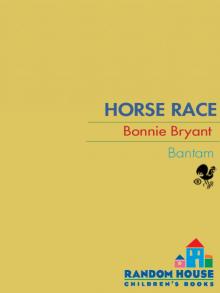 Horse Race
Horse Race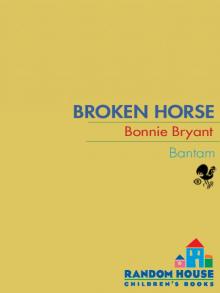 Broken Horse
Broken Horse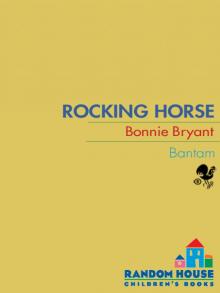 Rocking Horse
Rocking Horse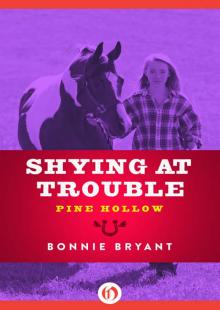 Shying at Trouble
Shying at Trouble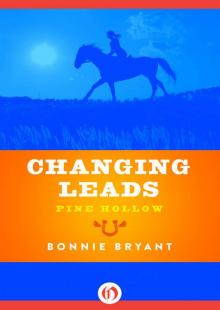 Changing Leads
Changing Leads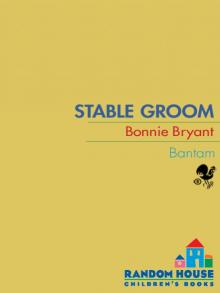 Stable Groom
Stable Groom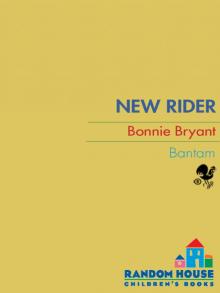 New Rider
New Rider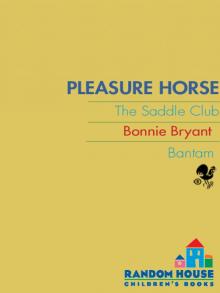 Pleasure Horse
Pleasure Horse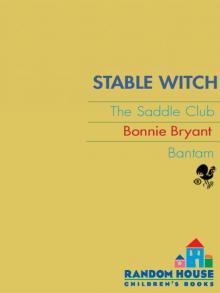 Stable Witch
Stable Witch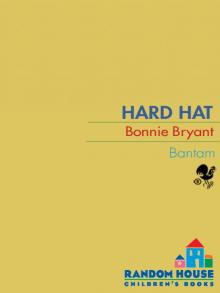 Hard Hat
Hard Hat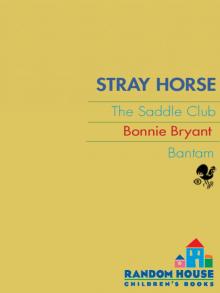 Stray Horse
Stray Horse High Stakes
High Stakes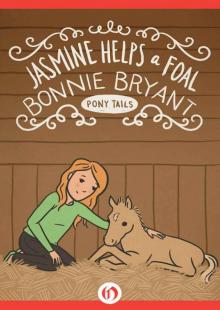 Jasmine Helps a Foal (Pony Tails Book 10)
Jasmine Helps a Foal (Pony Tails Book 10)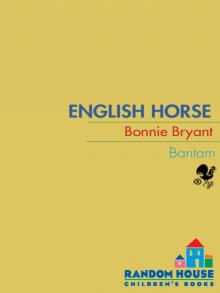 English Horse
English Horse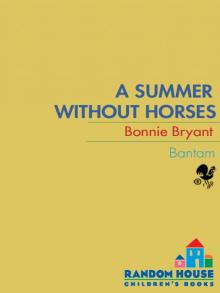 A Summer Without Horses
A Summer Without Horses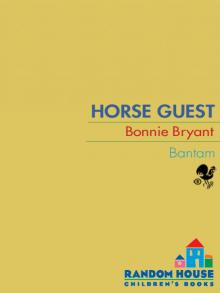 Horse Guest
Horse Guest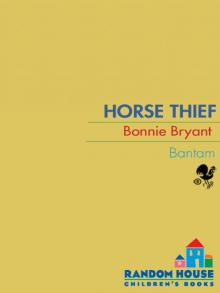 Horse Thief
Horse Thief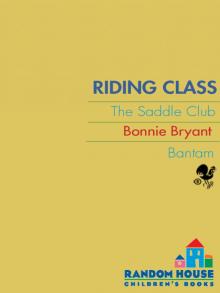 Riding Class
Riding Class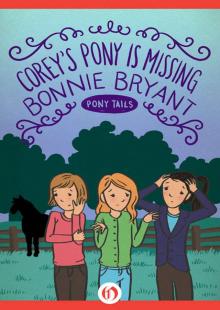 Pony Tails 03- Corey's Pony Is Missing
Pony Tails 03- Corey's Pony Is Missing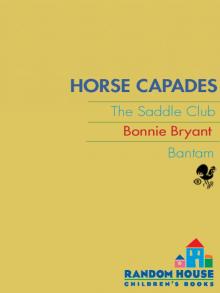 Horse Capades
Horse Capades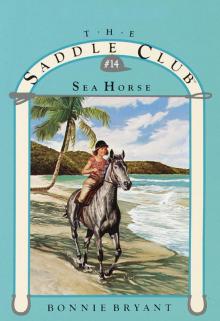 Sea Horse
Sea Horse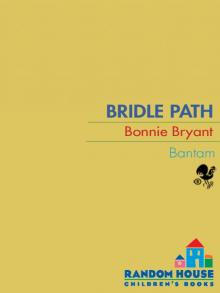 Bridle Path
Bridle Path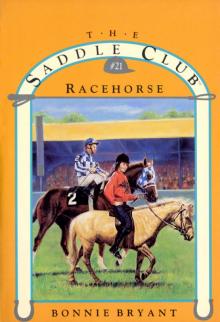 Racehorse
Racehorse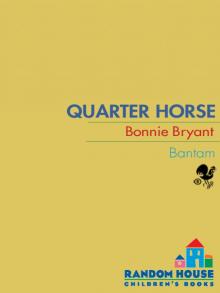 Quarter Horse
Quarter Horse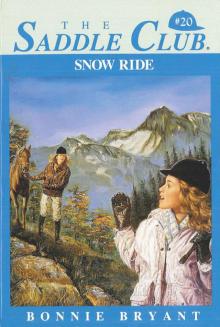 Snow Ride
Snow Ride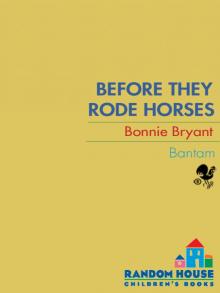 Before They Rode Horses
Before They Rode Horses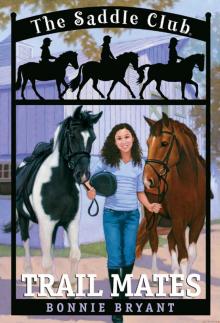 Trail Mates
Trail Mates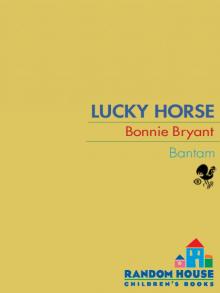 Lucky Horse
Lucky Horse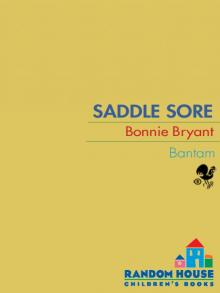 Saddle Sore
Saddle Sore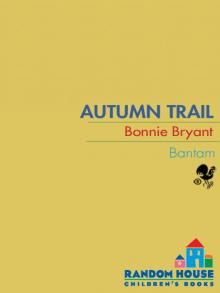 Autumn Trail
Autumn Trail Lisa
Lisa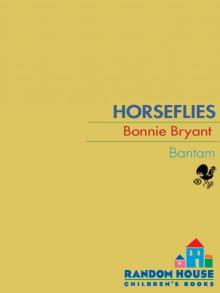 Horseflies
Horseflies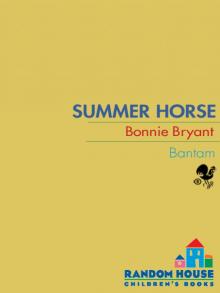 Summer Horse
Summer Horse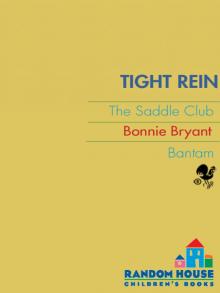 Tight Rein
Tight Rein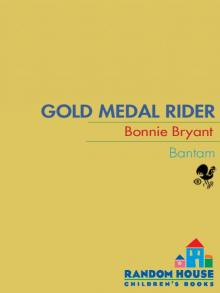 Gold Medal Rider
Gold Medal Rider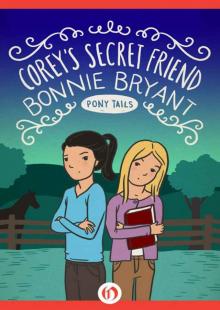 Corey's Secret Friend (Pony Tails Book 12)
Corey's Secret Friend (Pony Tails Book 12)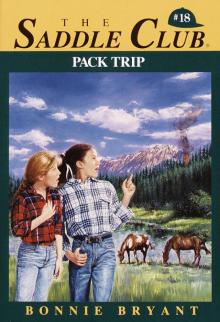 Pack Trip
Pack Trip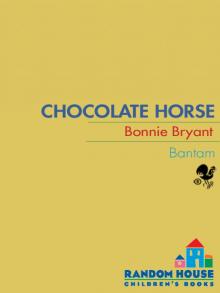 Chocolate Horse
Chocolate Horse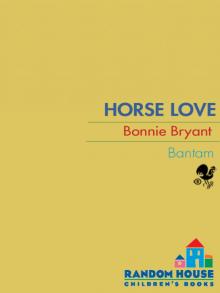 Horse Love
Horse Love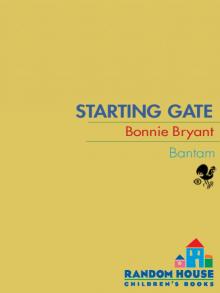 Starting Gate
Starting Gate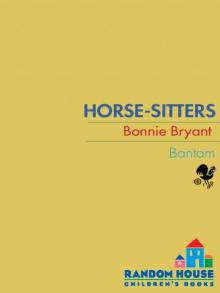 Horse-Sitters
Horse-Sitters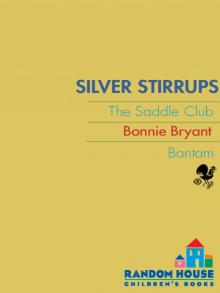 Silver Stirrups
Silver Stirrups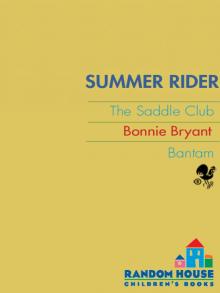 Summer Rider
Summer Rider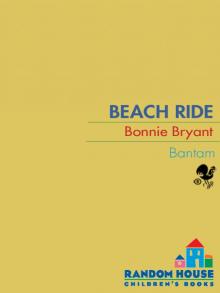 Beach Ride
Beach Ride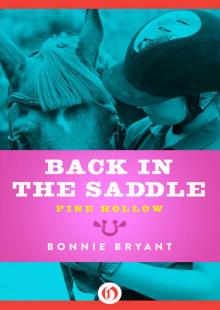 Back in the Saddle
Back in the Saddle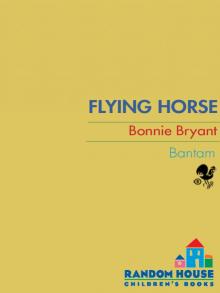 Flying Horse
Flying Horse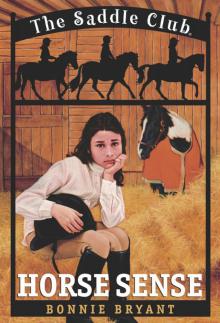 Horse Sense
Horse Sense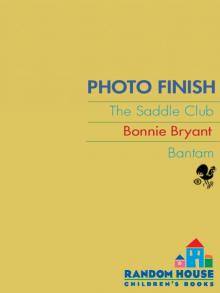 Photo Finish
Photo Finish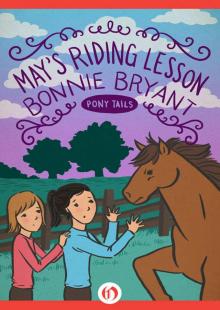 Pony Tails 02- May's Riding Lesson
Pony Tails 02- May's Riding Lesson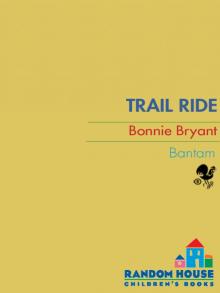 Trail Ride
Trail Ride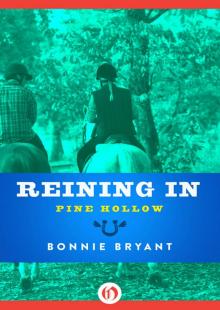 Reining In
Reining In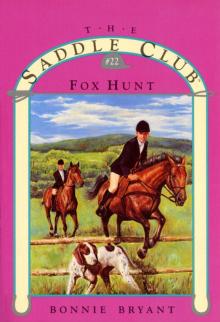 The Fox Hunt
The Fox Hunt Show Judge
Show Judge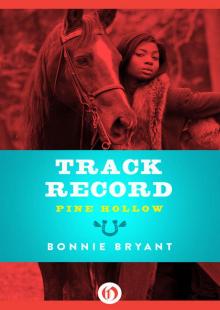 Track Record
Track Record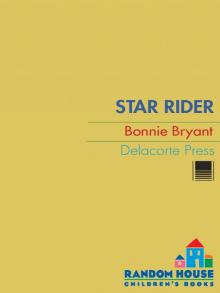 Star Rider
Star Rider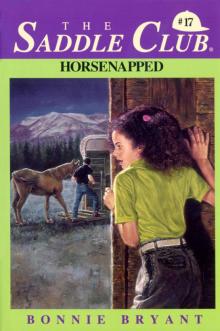 Horsenapped!
Horsenapped!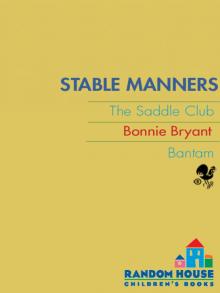 Stable Manners
Stable Manners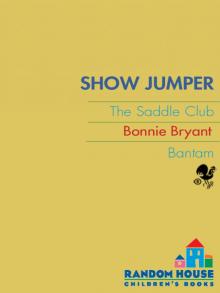 Show Jumper
Show Jumper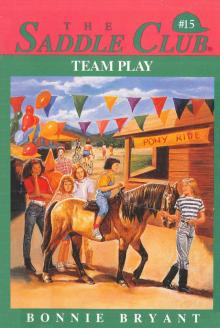 Team Play
Team Play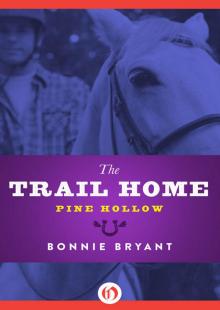 The Trail Home
The Trail Home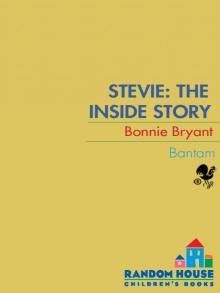 Stevie
Stevie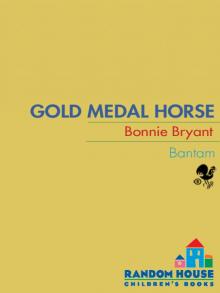 Gold Medal Horse
Gold Medal Horse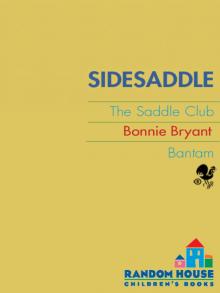 Sidesaddle
Sidesaddle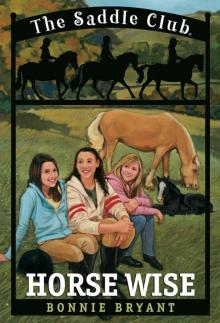 Horse Wise
Horse Wise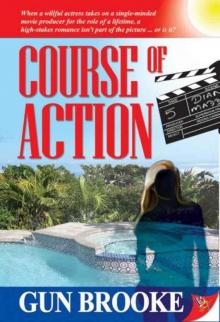 Course of Action
Course of Action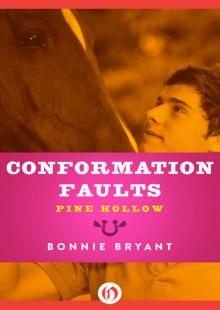 Conformation Faults
Conformation Faults